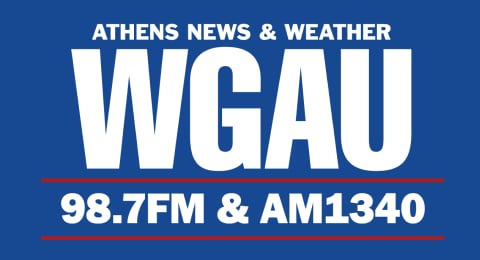Two U.S. lawmakers want more information on whether a private housing developer forced dorm re-opening decisions in Georgia’s university system, after the discovery of a letter written to the Board of Regents.
The letter, which focused on debt and profit, warned Georgia leaders they were contractually obligated to steer clear of influencing dorm return policies amid the pandemic.
This month, Senator Elizabeth Warren (D-MA) and Representative Rashida Tlaib (D-MI) asked Corvias for all of their communication with the University of Georgia system regarding re-opening plans.
Corvias is a private contractor for military and university housing, with Georgia’s university system being its largest collegiate client.
The request was issued after a May 29th letter from Corvias president Chris Wilson to Wayne State University and the University System of Georgia Board of Regents. Wilson makes it a point to tell USG it dipped into its reserves to provide $13 million in refunds amid the pandemic last semester, and Corvias would not share in that fiscal responsibility this fall.
The letter repeatedly warns the boards that Georgia universities don’t have a contractual “unilateral right” to put policies in place to limit the student occupancy or reduce housing fees . It tells the Board of Regents they don’t have the unilateral right to prevent students from living on campus, discourage students from living on campuses or exercise contractual rights that have a material impact on Corvias’s operation and management.” Wilson goes on to remind the university system of its debt to Corvias under the current contract.
“As partners in a 40-year arrangement, we believe … interests should be aligned, and that critical decisions that could impact housing fee revenue should be made with consideration of the long-term financial viability of the on-campus student housing project,” the letter reads.
Kelly O’Neal, a fourth year Georgia Tech student and housing advocacy manager, received and published the letter on social media. She filed an open records request earlier this summer, after unsuccessful attempts to reach university leadership with questions about re-opening fall re-opening plans.
“It really feels as if these decisions are being made to push by profits and running these institutions more as businesses than as schools.,” O’Neal told Channel 2 investigative reporter Nicole Carr.
In a statement, USG spokesman Aaron Diamant said the university system was not influenced by the housing contractor. Diamant said the colleges had submitted their re-opening plans three days prior to the Board of Regents’ receipt of that letter.
“The Corvias letter had no impact on University System of Georgia (USG) campus decisions on housing, and there was no action from the subsequent June staff discussion,” Diamant said in part of a statement.
In a June USG staff meeting, the legal implications highlighted in Corvias’ letter were discussed, but housing management options were not changed. USG and several campus as stressed that Corvias demands did not factor into health expert-led plans to re-open dorms.
In a virtual town hall this week, faculty and students from various campus were not sold on the statement.
“The official responses from Georgia State and a couple of other places were that ’yeah, this letter didn’t factor into our re-opening decision and the reason was that ‘so few people had registered for campus housing, to begin with so it made it a moot point’,” said UGA Ph.D student, Bryant Barnes. “That’s not an argument that you didn’t take it into consideration. That’s saying that folks are scared to “f-ing” come back to campus.”
“We’re clearly not being motivated by health and science and there are clearly some other things…and money is a clear driver behind decisions here,” said Dr. Brian McGurkle, a Georgia Tech professor and director of graduate studies in digital media.
Warren was a part of a 2019 investigation into Corvias for unfit military housing conditions that landed the company and other contractors at the center of a federal lawsuit filed by military families last year. She and Tlaib released a joint statement last week, largely centered around concerns raised in Georgia.
“These revelations present serious concerns regarding Corvias’s role in addressing the student housing issues and funding problems that campuses are dealing with during this pandemic, and raise questions about the nature of its public-private partnerships with public institutions of higher education and their governing bodies...It would be troubling if Corvias was once again prioritizing its profits over the health and safety of its residents,” the Congresswomen wrote.
Diamant said USG has not been contacted by Warren’s office.
Corvias has yet to respond to Channel 2 requests, or those requests originating with any other media outlet.
“At the end of the day, really transparency is the only thing we can hope for in any process,” said O’Neal. “Right now we’re at the point where we already have a lot of people on campus. I’m interested to see what comes out of that for sure and if that has implications in regard to USG or universities just in general.”
Cox Media Group






